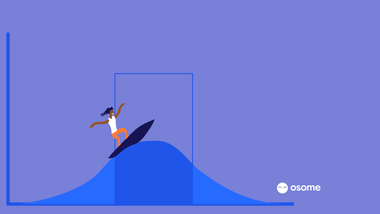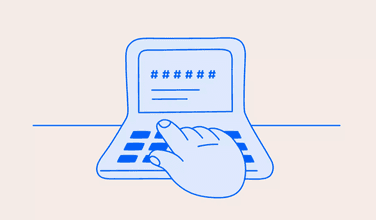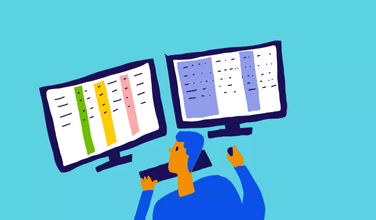8 Steps for Online Sellers To Prepare for Tax Season
What exactly do you need to prepare during the tax season? This article will share 8 steps on how to prepare taxes for online business.

Tax season has arrived. It’s that time of the year where businesses scramble to prepare the necessary paperwork to complete and file their Self-Assessment Tax Return to HM Revenue and Customs (HMRC).
Online businesses are not spared as well. With more people doing online shopping these days, it is important for business owners and online sellers to take note of the necessary steps during the tax season.
If you’re still scrambling to get your books in order and wondering what exactly you need to prepare for the tax season, why not trust the work to an experienced accountant in UK? This article will share 8 steps on how to prepare taxes for online business.
Step 1: Keeping proper records
It is important to keep proper records of your income and expenditure at the beginning of your business. With proper records in place, it helps you to make informed decisions during your business planning. Likewise, it makes your filing of tax returns easier and quicker. Who wouldn’t want that? Most of us wouldn’t want to pay unnecessary interest and penalties, if there is any delay.
You will need to keep invoices and receipts. These documentations show you the things you have bought and sold relating to your business
Maintaining up-to-date financial statements gives you an overview of what you’ve spent on non-business related and on business.
Step 2: Understanding tax requirements
As much as the nature of online business transactions is multi-jurisdictional, understanding the tax requirements for different business structures is important.
For different business structures, you may have to pay the following taxes:
- Income tax
- Corporation tax
- National insurance contributions
- VAT
- Employers’ PAYE
- Business rates
Taxes are imposed on UK residents on any income earned. If your company is trading goods and services within the country, your income will be subject to tax. It’s as simple as that. Collection of VAT is only applicable to business with a VAT taxable turnover exceeding more than £90,000.
For new online sellers who are a sole trader, you might be wondering if you need to pay any tax at all. The answer is yes. But you are allowed to earn up to £1,000 before you start paying tax. When HMRC categories you as an online seller, you will need to pay income tax on your earnings.
Jake started to sell handmade goods on his ecommerce store a few months ago. As a new store, he does not generate enough profits. But by the end of the tax year, his business picked up. He generated more than £2,000. In this case, he will need to pay tax.
Step 3: Corporate tax
Currently, the corporate tax rate is set at 19%. Previously, if your business is situated outside the UK but has an online presence in the country, your earnings are not subject to UK tax. However from April 2020 onwards, non-resident businesses are liable to UK corporation tax.
Step 4: Tax Deduction
We know that in order to run or sustain a business in the long run, it’s good to know what taxes one should pay or claim. You do not want to pay unnecessary taxes. These are the costs that may include in your tax deduction:
- Office costs
- Travel costs
- Clothing expenses
- Staff costs
- Things you buy to sell on
- Financial costs
- Costs of your business premises
- Advertising or marketing
- Training courses
Florence makes business trips from her company in Manchester to London fortnightly. The transport expense for her business trip costs an estimated £200. She can claim for £200 as her business expense.
If your business is buying items to use in your business, you are able to claim as capital allowances. These include:
- Equipment
- Machinery
- Business vehicles, such as, cars, vans and lorries
With the current pandemic situation, people have been working from home for months. As such, you may be able to claim a flare rate per month on your expenses. You can only use simplified expenses if you work for 25 hours or more a month from home.
| Hours of business use per month | Flat rate per month |
|---|---|
| 25 to 50 | £10 |
| 51 to 100 | £18 |
| 101 and more | £26 |
Adam lives in a two bedroom flat. He uses one room as his office. He worked for 40 hours from home for 10 months, but worked 60 hours during 2 particular months.
10 months x £10 = £100
2 months x £18 = £36
Total that Adam can claim = £136
Step 5: New Online Sales Tax Proposal
The new online sales tax for online business is 2%. The main purpose is to help struggling high street brick-and-mortar shops with a slight price advantage.
Step 6: What forms do I need to submit?
As an online business owner or a seller, you will need to submit an annual Corporation Tax Return to HMRC.
However, the UK government has recently implemented tax software called ‘Making Tax Digital for Income Tax’. It is a new way of reporting earnings to HMRC. The aim of using this software is to keep digital records and send income tax updates instead of filing a Self-Assessment Tax. You may sign up for this software at gov.uk. But you need to have the following software that is compatible with ‘Making Tax Digital for Income Tax’.
Step 7: Filing your taxes on time
Filing your taxes on time is important for most businesses, as you do not want to pay a penalty. Sometimes, you may not catch up with many business decision-makings and might have missed the deadline for filing your Self-Assessment tax return. For a late filing penalty of up to 3 months late, you’ll need to pay £100. You will be charged more if you’ve exceeded more than 3 months.
The current tax year is from 6th April 2021 to 5th April 2022.
Step 8: Finding the right accountant
Finally, finding the right accountant will relieve you from any form of stress during the tax season. A right accountant will be able to understand your industry and also the needs of your business. He or she will be able to advise you on the number of ways to reduce your tax. At this point, you might have some questions about reducing taxes or preparing business taxation for the coming year. Just drop us a line at any time, and we can give you advice on taxes for your online business.
Summing up
Online business has its own set of challenges, as more companies are moving towards digitalisation. So when it comes to filing a self-assessment tax return, it can get quite confusing. With these 8 steps, it gives you an idea about the paperwork that you will need to prepare. More importantly, remember the deadline for filing your tax return.
Our Osome accountants are familiar with accounting for ecommerce companies. If you need any help, we’ll be happy to help out. Simply drop us a line.







